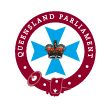-
Work of committees
- Upcoming Committee Business
- About Committees
- Training Seminar - Committees@Work
-
Committees (10)
- Committee of the Legislative Assembly
- Education, Arts and Communities Committee
- Ethics Committee
- Governance, Energy and Finance Committee
- Health, Environment and Innovation Committee
- Justice, Integrity and Community Safety Committee
- Local Government, Small Business and Customer Service Committee
- Parliamentary Crime and Corruption Committee
- Primary Industries and Resources Committee
- State Development, Infrastructure and Works Committee
- Committees Glossary
- Estimates Hearings
- Inquiries
- Live and Archived Broadcasts
- Publications
- Guidelines (4)
- Subscribe
- Former Committees (67)
- 30 Year Release
- Past Alert Digest and Legislation Alert Indexes
- Ten Year Anniversary
Consideration of Auditor-General Report 10: 2018-19 – Digitising public hospitals
Committee's REPORT
The committee tabled its report on 10 September 2020. The committee noted that it is satisfied the issues identified by the Auditor-General in the reports are being addressed in a structured and timely way by departments. The committee did not resolve to hold further inquiries into these audit reports and made no recommendations to the Legislative Assembly.
View: Report No 41, 56th Parliament - Annual Report 2019-20
View: Auditor-General Report 10: 2018-19 – Digitising public hospitals
Overview
Role of the Auditor-General
The role of the Auditor-General is to provide Parliament with independent assurance of public sector accountability and performance. This is achieved through reporting to Parliament on the results of its financial and performance audits.
About the Auditor-General Report
The purpose of the report is to present the findings of an audit that assessed how well Queensland Health has planned, and is delivering, its digital hospitals program and whether it is realising the intended information-sharing and patient benefits.
The report recommended that the Department of Health and the hospital and health services that have implemented the ieMR solution continue to work together to identify the actual cost to date of implementing and operating ieMR. In particular, the report recommended that the Department of Health should:
use this information to update the Cabinet Budget Review Committee on the actual program cost to date. The information should form the basis for a more reliable estimate of what it will cost to complete the program and of the longer term costs of maintaining the ieMR solution
in consultation with HHSs, consider whether the level of investment by HHSs to implement the ieMR solution is appropriate.
The report also recommended that the Department of Health:
- completes its refresh of the eHealth investment strategy based on the revised cost of the ieMR program and any impacts it has on the strategy for other programs
- provides the Cabinet Budget Review Committee with:
- updated timing for the realisation of benefits
- a balanced assessment of benefits realised (and dis-benefits) across hospitals from all hospital and health services that have implemented the ieMR
- provides greater assurance that it is obtaining ongoing value for money from its ieMR vendor by:
- investigating options for demonstrating value-for-money pricing, including conducting comparative vendor price analysis where possible
- assessing and documenting the ieMR vendor’s performance across its service contracts, with input from hospital and health services. This should occur at appropriate intervals and, at a minimum, before each contract extension decision
- re-visits the governance arrangements for the program as it moves from building, configuring, and implementing the ieMR solution to business-as-usual and optimising the solution This should include:
- re-visiting the focus and roles of the eHealth Executive Committee, eHealth Queensland, and other areas of the department such as the Clinical Excellence Division
- continuing to obtain an independent review of program benefits periodically.
- develops and implements an engagement strategy for all current and planned eHealth programs to assess the effectiveness of its engagement with hospital staff and clinicians and the effectiveness of the system implementation. This should include:
- specific actions, performance measures, and data sources to enable the department to assess how effectively the department engages hospital staff and clinicians
- gathering information about concerns, risks, or dis-benefits that may inform the program about changes or modifications that need to be made to the program.
- continues efforts to refine the business intelligence strategy and approach, and rollout solutions to hospital and health services to maximise the benefits from the ieMR implementation at each site
- improves the preventative security controls of ieMR user accounts. This should include enforcing password complexity requirements and implementing a change management process to educate clinicians on appropriate password settings.
Finally, the report recommended that all hospital and health services participating in the ieMR program:
- report regularly on their total ieMR project costs and broader costs associated with their digital transformation (separated from ieMR costs) to eHealth Queensland as well as to their own hospital and health service boards
- improve their employee termination processes to ensure they promptly remove an employee’s ieMR access when an employee or temporary staff member terminates their employment with their hospital and health service
- implement a process to monitor whether reviews of inappropriate user access to ieMR patient data are completed
- report dis-benefits to the program so the program can learn from these and if necessary, modify the solution or implementation approach.
Referral to Committee
Standing Order 194B provides that the Committee of the Legislative Assembly shall as soon as practicable after a report of the Auditor-General is tabled in the Assembly refer that report to the relevant portfolio committee(s) for consideration.
The committee is responsible under section 94 of the Parliament of Queensland Act 2001 for assessing the integrity, economy, efficiency and effectiveness of government financial management by examining government financial documents and considering reports of the Auditor-General.
The Committee of the Legislative Assembly referred this Auditor-General’s report to the committee on 14 February 2019.
Related Publications
| Publication Details | Type | Published Date | Tabled Date | Committee Name |
|---|
